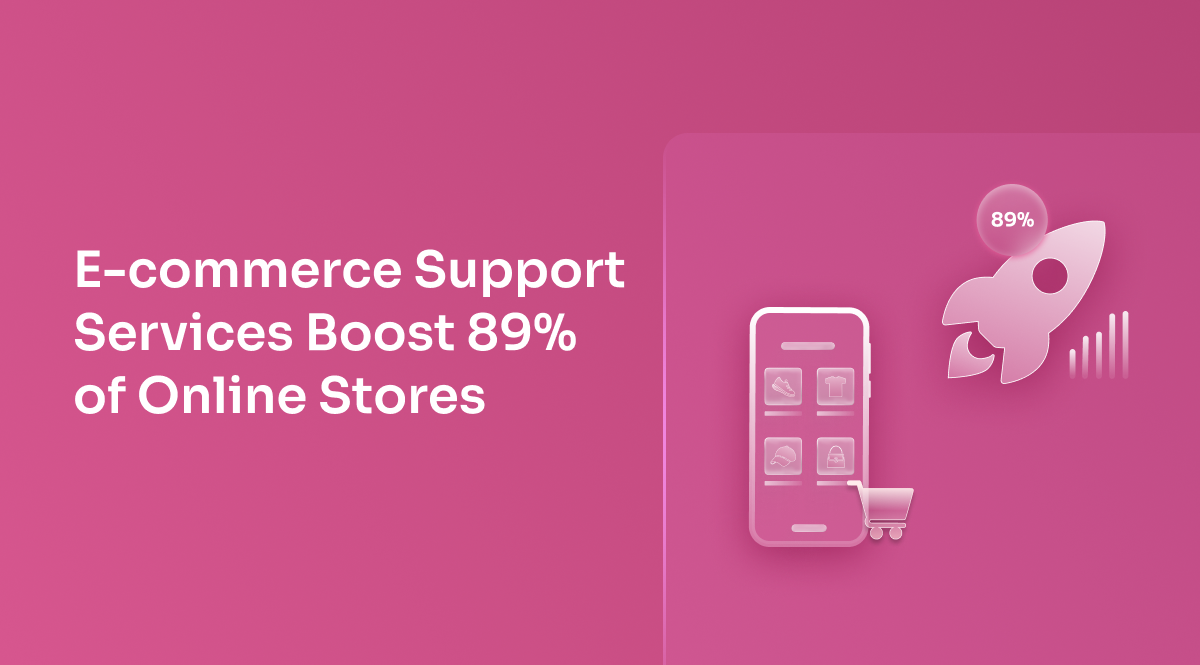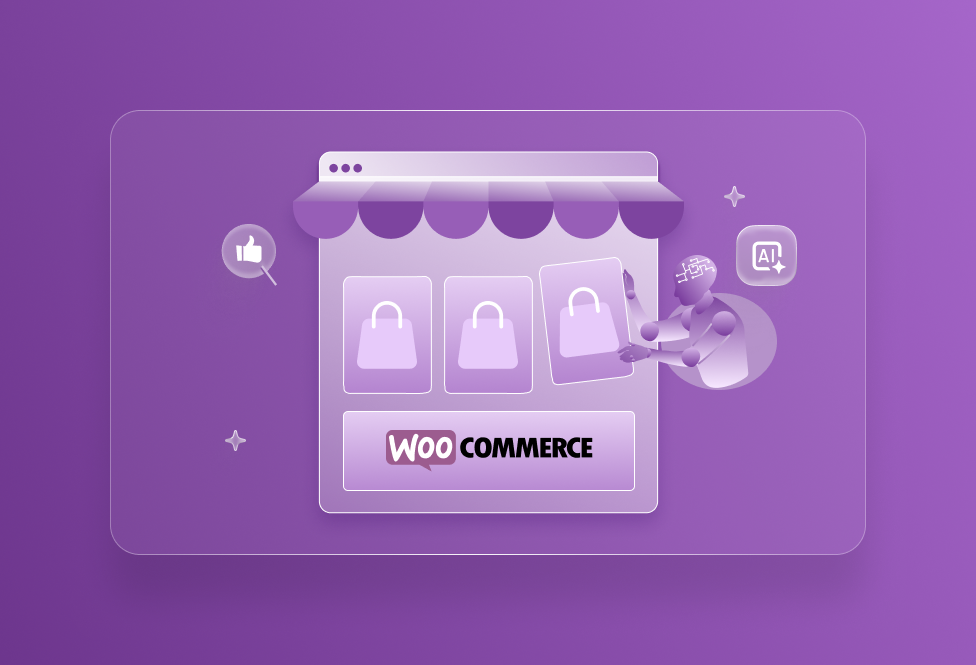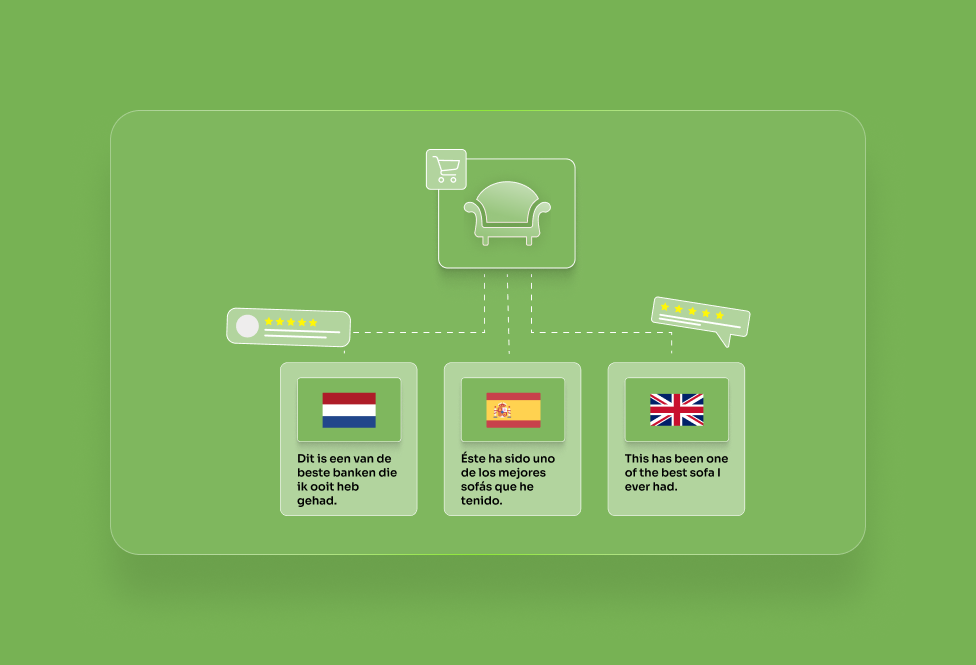It’s the same story…
The store launches, design looks sharp, products are live, traffic’s picking up, you’re ahead of schedule.
Then your team flags an issue: a few customers can’t complete checkout. You test it…it works for you. Probably just a browser thing?
That’s when most teams realize they need real e-commerce Support Services. Because it’s not a one-off glitch. It’s a sign things break…often without warning.
Next, mobile speed drops. A plugin update wrecks the layout. Your big sale hits, and the payment gateway crashes.
Suddenly, you’re not growing your e-commerce store, you’re patching it together.
Here’s the reality: e-commerce sites, especially WooCommerce – are never “done.” They need constant updates, fixes, and monitoring. That’s where dedicated e-commerce support comes in not just to fix issues, but to stop them from draining revenue.
If your online store truly matters to your growth, support isn’t optional. It’s how you stay fast, secure, reliable, and ready to scale.
Let your internal team focus on strategy, while your support team keeps everything running behind the scenes.
Key Takeaways
- e-commerce never sleeps: Needs ongoing updates, fixes, and monitoring.
- Lost revenue hides in plain sight: Small issues like broken checkout or slow pages can cost thousands.
- Support isn’t just about problems, it’s about performance: Keeps store fast, stable, and ready to convert.
- IT support doesn’t speak of e-commerce: Avoids generic IT gaps like cart glitches and mobile lag.
- Smart support pays for itself: 24/7 monitoring, safe updates, and quick issue resolution boost sales.
Why Your Online Store Needs a Strong e-commerce Support Plan in 2026!
Setting up an e-commerce store is the easy part. WooCommerce, Shopify, Magento, BigCommerce – these platforms get you to launch quickly. But what happens after that? When real traffic rolls in, orders stack up, and one small issue quietly disrupts everything?
That’s where the cracks start to show. And without proper support, those cracks often go unnoticed until they start costing real money.
Here’s what that looks like in the real world:
- A plugin update breaks your checkout and no one realizes for hours.
You only find out because a customer sends an email saying they couldn’t complete their order. By then, the damage is done. Sales are lost. Trust is shaken. - Your mobile site loads just slow enough to push people away.
Everything looks fine on the desktop, but conversions are down. Your ads are working, traffic is steady, but something’s off. Turns out, mobile shoppers gave up before the page even finished loading. - Your homepage shows a ‘Not Secure’ warning during a weekend.
The SSL certificate expired, and your internal team isn’t watching. Visitors leave because the store looks unsafe. You lose credibility in real time. - A key integration fails during a live promotion.
Your sale draws attention. Traffic spikes. But the shipping or payment system glitches. Now you’re sorting through complaints instead of celebrating orders. - Your team is focused on growth
They’re launching products, running campaigns, managing customer queries. Tech issues fall to the bottom of the list – until they can’t be ignored anymore.
This is why e-commerce support isn’t a backup plan. It’s the foundation that keeps everything working while you focus on growing the business. In 2026, the stores that win won’t just have the best designs or products. They’ll be the ones that run reliably, every single day.
Why Smart Leaders Invest in E-commerce Maintenance Services!
They See Support as Strategy, Not Just Safety…
The smartest e-commerce teams don’t wait for something to break. They build systems that prevent problems from happening in the first place. For them, support isn’t an emergency fix. It’s an investment in stability and growth.
According to Meteor Space, 64% of e-commerce leaders say customer service directly impacts business growth. And 86% of customers say they’ll leave a brand after just two bad experiences.
Real Reasons Leaders Don’t Leave Support to Chance
- They avoid invisible revenue loss
Checkout bugs, slow load times, or integration errors often go unnoticed, until a customer points them out. Support teams catch these before they hit the bottom line. - They protect conversions across every device
With over 70% of e-commerce traffic coming from mobile, even a slight delay on mobile pages can kill conversion rates.
Source: gladly.ai - They scale with confidence
More tools mean more risk: CRMs, payment gateways, shipping software. Smart leaders invest in support to ensure these systems work seamlessly together, especially during high-traffic campaigns. - They free their internal teams
Your developers, marketers, and project managers shouldn’t be spending hours on bug fixes. Support services take over the tech maintenance so your team can focus on growth.
The Real-World Benefits for Your Business
It’s Not Just About Keeping the Site Online
Support services do more than fix bugs. They create the conditions where your e-commerce store can actually thrive – consistently. With the right support in place, your store doesn’t just stay online – it performs better, converts better, and builds more trust.
Here’s how that plays out in real life:
1. Higher Conversion Rates
Small tech issues create big drop-offs. A slightly slow-loading product page or a glitchy coupon code can quietly kill dozens of sales a week.
Dedicated support teams fix these friction points early, keeping the experience smooth from homepage to checkout.
“A Google study found that a one-second delay in mobile load time can drop conversions by up to 20%.”
2. Faster Pages, Better SEO, More Traffic
Google prioritizes speed and usability. A support team helps your store stay optimized – removing bloat, updating plugins, and improving Core Web Vitals.
More speed = better rankings = more traffic = more sales.
3. Improved Customer Experience
Support isn’t just about tech, it’s about people. When your store loads fast, checkout works, and nothing feels broken, customers notice. They trust your site more, and they’re more likely to come back.
It’s no surprise that 89% of consumers say they’re more likely to return to a business that delivers a seamless experience.
Source: Salesforce State of the Connected Customer Report
4. Less Stress on Your Internal Team
When support is handled externally, your internal team isn’t buried in technical tasks. They focus on growing the e-commerce business – strategy, content, marketing, and customer service. While the support team keeps the site running smoothly.
No more late-night plugin emergencies or guessing why something broke.
5. Revenue Protection, Day After Day
Your e-commerce site is your storefront. If it’s not performing, you’re losing money. Support services reduce downtime, prevent errors, and make sure every visitor has the best chance of becoming a customer.
It’s protection for your revenue – plain and simple.
Why Are E-Commerce Support Services Not Optional?
Because things break. And when they do, it costs you – time, money, and trust.
You can’t afford to “hope” your e-commerce store runs smoothly. Not in 2026. Not when customers expect fast, flawless experiences every time they visit your site.
Support isn’t something you add later. It’s what keeps everything working from day one.
Why!
A single bug in checkout can kill a campaign.
You don’t get second chances when a customer’s ready to buy.
Slow pages push customers away.
If your site drags, your sales will too.
Your team can’t do it all.
Even the best in-house teams miss things. Support bridges the gap.
Fixing problems after they happen is expensive.
Preventing them? Way cheaper.
If your e-commerce site matters to your business, support isn’t optional. It’s protection, performance, and peace of mind. All built in.
Signs You Need Dedicated Support Today..
- You’re constantly fixing bugs instead of moving forward
- Sales dip, and you don’t know why
- Your site struggles during high-traffic moments
- Customers report issues before your team sees them
- Mobile speed is slow, and conversions are dropping
- Updates feel risky – not routine
- Your team is burned out trying to keep things running
If any of this sounds familiar, your store doesn’t just need support. It needs a serious support system – Now.
Don’t wait for the next failure to force your hand.
What Dedicated E-Commerce Support Really Means?
It’s not a help desk. It’s not a ticket system. It’s not just “someone you call when things break.
- 24/7 monitoring so you know your store’s healthy – even when you’re off the clock
- Bug fixes before they cost you sales – not after customers complain
- Plugin and platform updates done safely with staging, backups, and rollback plans
- Speed optimization so your pages load fast, everywhere
- Mobile performance checks to keep conversions up where it matters most
- Security monitoring so you’re not caught off guard by vulnerabilities
- Emergency response when something goes down, fast
In short: It’s everything your internal team wishes they had time to do – handled by experts who live and breathe e-commerce.
Top 10 E-commerce Support Services You Should Outsource Right Now
You don’t need to do everything in-house.
In fact, trying to manage it all yourself is usually what hinders serious e-commerce growth.
Here are the 10 support services smart e-commerce online businesses are already outsourcing, and why you should too:
Top 10 E-commerce Support Services.
1. Plugin and Theme Updates
Outdated plugins are one of the most common reasons e-commerce sites break. A dedicated support team tests, updates, and monitors compatibility before issues reach your customers.
2. Speed Optimization
Slow pages kill conversions. Support pros trim unnecessary code, compress images, and streamline scripts so your site loads fast, especially on mobile.
3. Checkout and Cart Flow Testing
Even a small glitch in checkout can cost thousands in lost revenue. Regular testing keeps your buying experience smooth and secure.
4. Security Monitoring and Patching
With e-commerce fraud and attacks increasing, security must be ongoing. Support teams monitor vulnerabilities and apply fixes quickly to keep your store safe.
5. Mobile Performance Tuning
Most of your buyers are on mobile. Support ensures the experience is fast, responsive, and bug-free across all screen sizes.
6. Backup and Restore Management
Mistakes happen. Updates fail. Having reliable backups and quick restore processes in place can save your business from disaster.
7. Uptime Monitoring
Every minute your store is down, you lose sales. Support teams monitor uptime around the clock and act fast if your site goes offline.
8. Third-Party Integration Support
Your e-commerce store runs on more than just WooCommerce or Shopify. Support helps keep your CRM, shipping tools, and payment systems working together smoothly.
9. Conversion Tracking and Analytics Checks
If your tracking is broken, your decisions are blind. Support ensures your funnels, goals, and analytics are accurate and actionable.
10. Technical Support for E-commerce During Campaigns
During a sale or product launch, you can’t afford delays. Dedicated support teams jump in quickly when something goes wrong so you can keep selling.
Outsourcing these services isn’t about saving time. It’s about protecting revenue, keeping your store stable, and giving your team the freedom to grow the business.
Why Generic IT Support Isn’t Enough for e-commerce
Running an e-commerce store isn’t like managing a regular website. It’s not just about keeping servers up or fixing email glitches. Every click, load time, and transaction affects your revenue.
That’s where general IT support falls short. They’re not built for the real-time, high-pressure world of online selling.
Here’s what they typically overlook:
- Checkout errors that don’t trigger alarms but quietly kill conversions
- Plugin or theme updates that break your layout and go unnoticed until a customer complains
- Mobile performance issues that only show up on real devices
- Crashes or timeouts during sales campaigns, when you need reliability most
- Treating your e-commerce site like it’s static, not a 24/7 money-making machine
Generic IT is reactive, and e-commerce support is proactive. And if you’re serious about selling online, that difference matters.
How to Choose the Right E-commerce Support Partner
Not all support teams get e-commerce.
You need more than basic IT fixes; you need a partner who knows what breaks conversions and how to prevent downtime before it costs you.
Look for:
- e-commerce platform expertise (WooCommerce, Shopify, WordPress)
- Proactive issue prevention, not just reactive fixes
- Fast, reliable responses when it matters most
- Scalable support as your store grows
That’s exactly what we do at JNext Services.
We provide dedicated e-commerce support for WordPress, WooCommerce, and Shopify websites, whether you’re managing a small online e-commerce website or one of the top e-commerce websites in your industry. Our team is built to monitor, maintain, and scale your platform so you don’t have to worry when traffic spikes or updates roll out.
We fix issues before they become problems. We keep your e-commerce store running at full speed. And we make sure you’re always one step ahead with smart, proactive e-commerce help.
Talk to our e-commerce experts today…!
Final Thoughts: Support Isn’t Just for When Things Break
If you think e-commerce support can wait, it’s already costing you.
Real support isn’t just fixing issues. It keeps your store fast, secure, and conversion-ready…day and night.
It protects your revenue. It earns customer trust. And it gives your team room to grow instead of firefighting bugs.
If your store drives revenue, support keeps it running.
FAQs
Below are some answers to common questions about website maintenance.
They include updates, monitoring, speed optimization, and emergency fixes to keep your online e-commerce store running smoothly.
Because e-commerce sites are never truly finished. Without support, bugs and slowdowns quietly kill conversions and revenue.
Not efficiently. Your e-commerce manager should focus on growth strategy instead of fixing plugins or tracking bugs.
If you’re constantly fixing bugs, seeing sales dip, or hesitant about updates, it’s time for a dedicated e-commerce support plan.
Generic IT support keeps servers online. e-commerce support services solve problems that directly affect revenue, like cart errors and mobile issues.
It should cover 24/7 monitoring, plugin updates, speed checks, technical support for e-commerce, backups, and analytics tracking.
Choose someone with platform expertise in WooCommerce or Shopify, quick response times, a proactive approach, and scalable services.
Yes, A broken checkout or a slow site can cost you more than the monthly cost of e-commerce maintenance services.
A solid team acts within hours or sooner, especially during high-traffic events or sales on your e-commerce store.


 August 13, 2025
August 13, 2025




TEAM id
jnext_services
email us [email protected]
india
+91 98587 63596
United Kingdom
+ 44 77679 57915